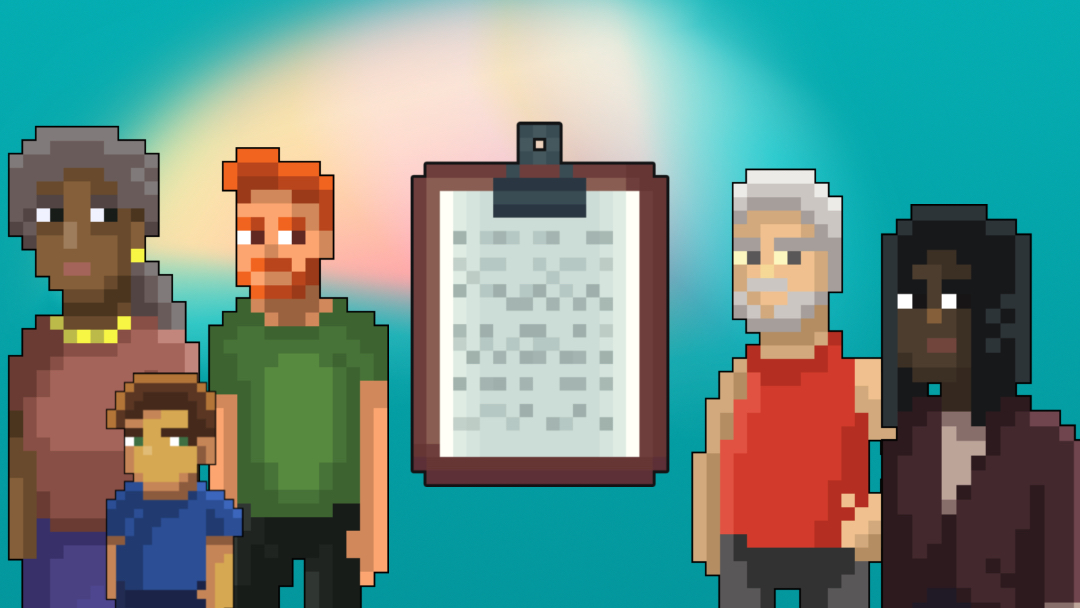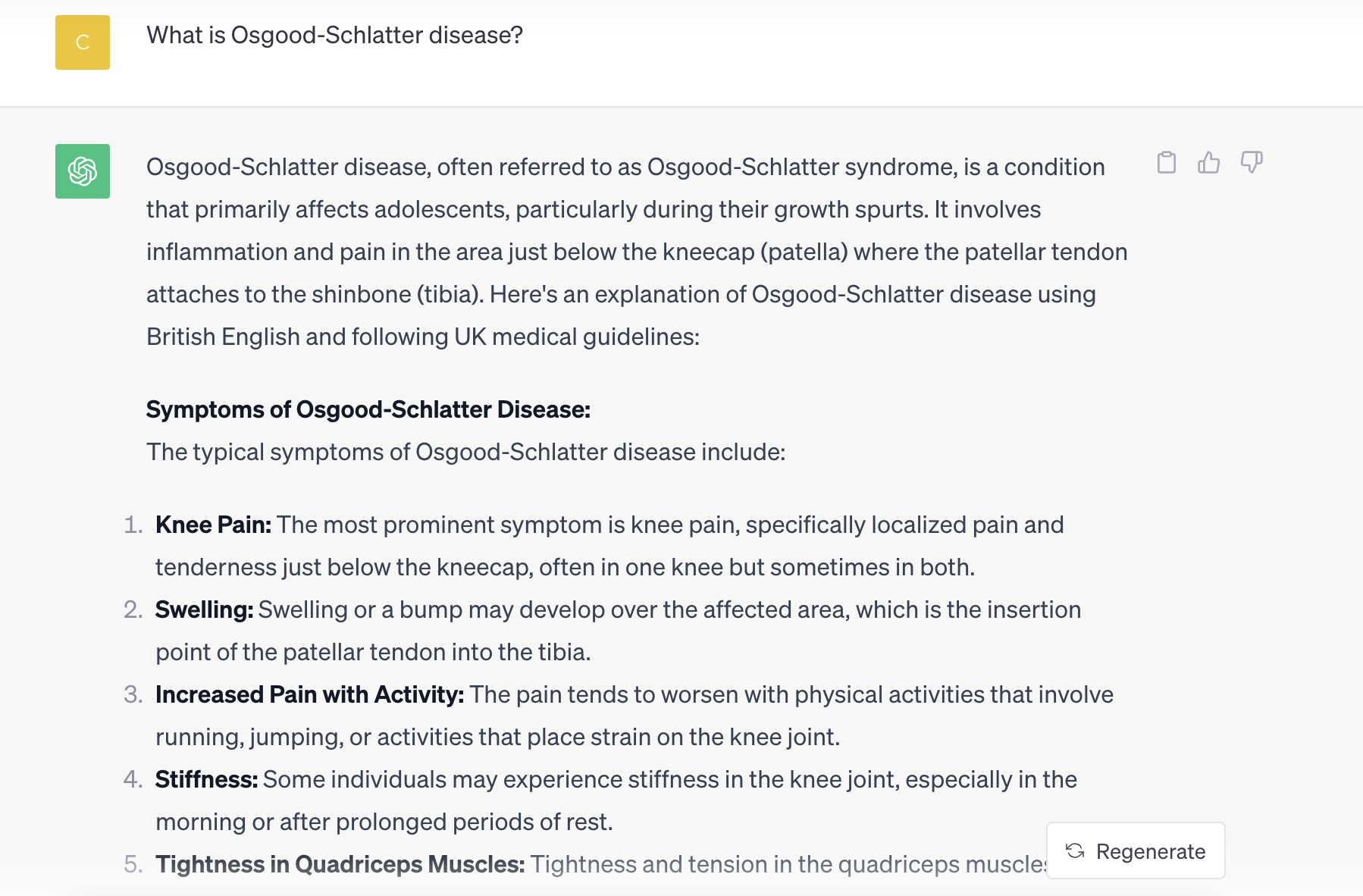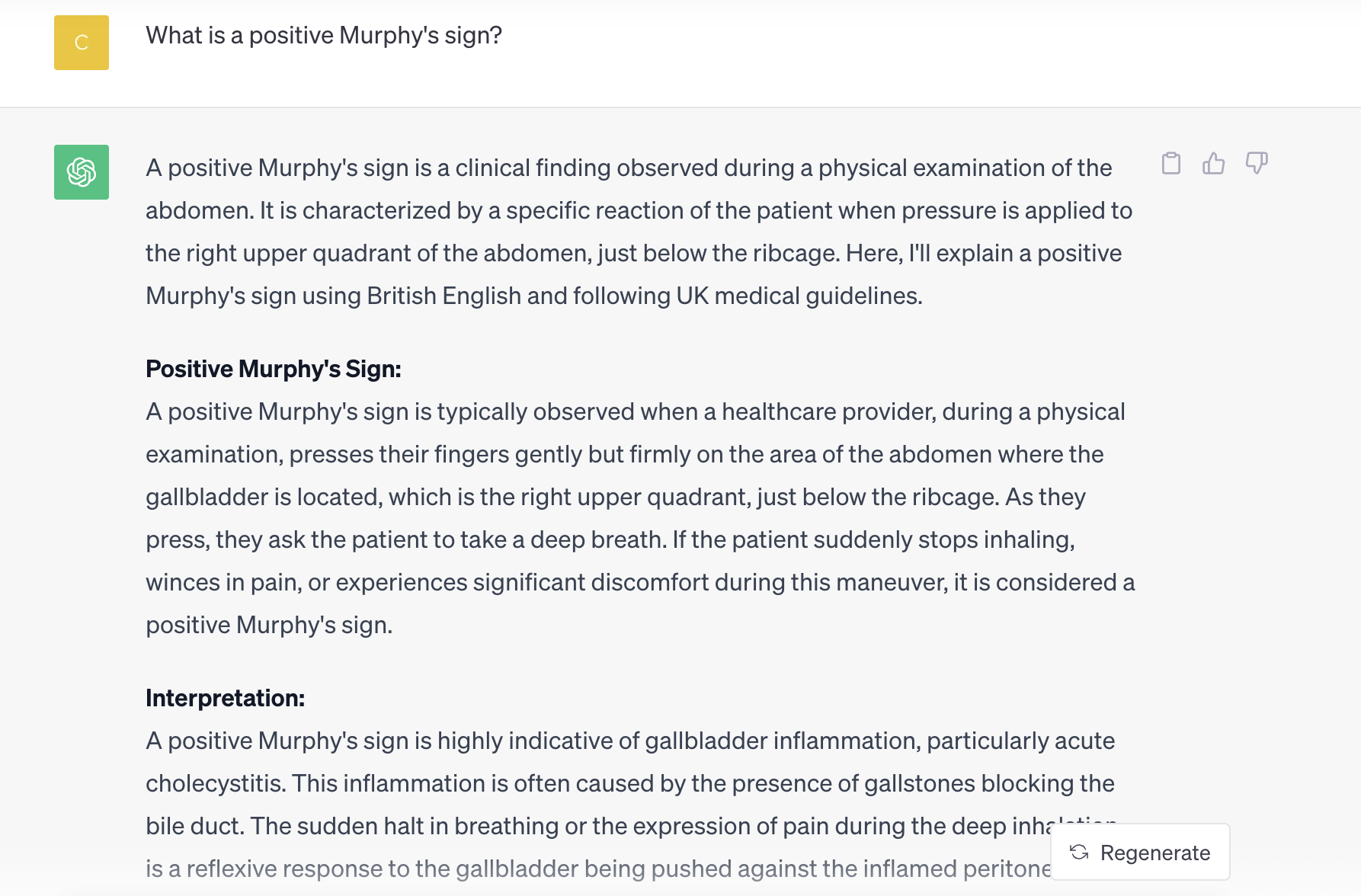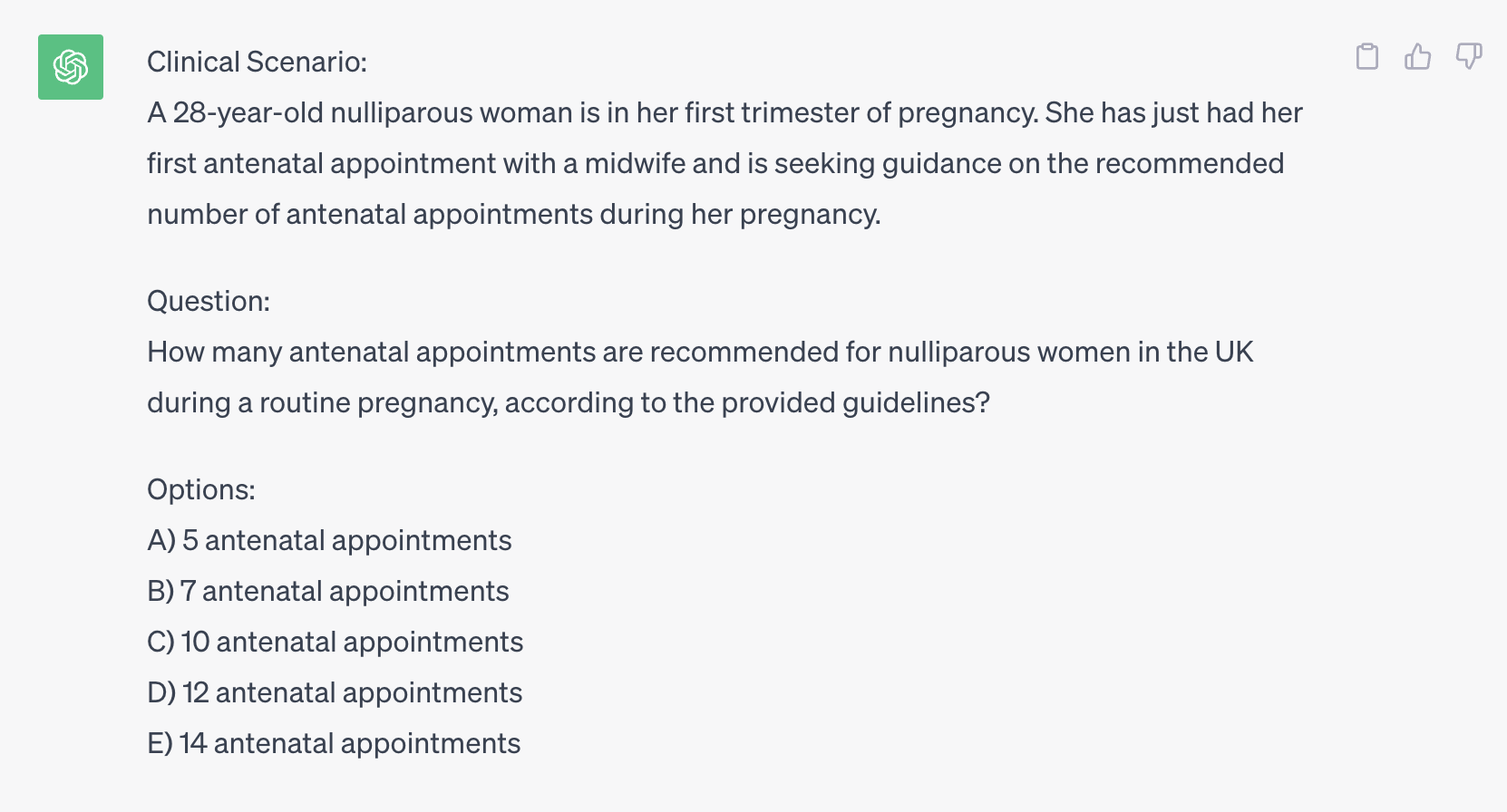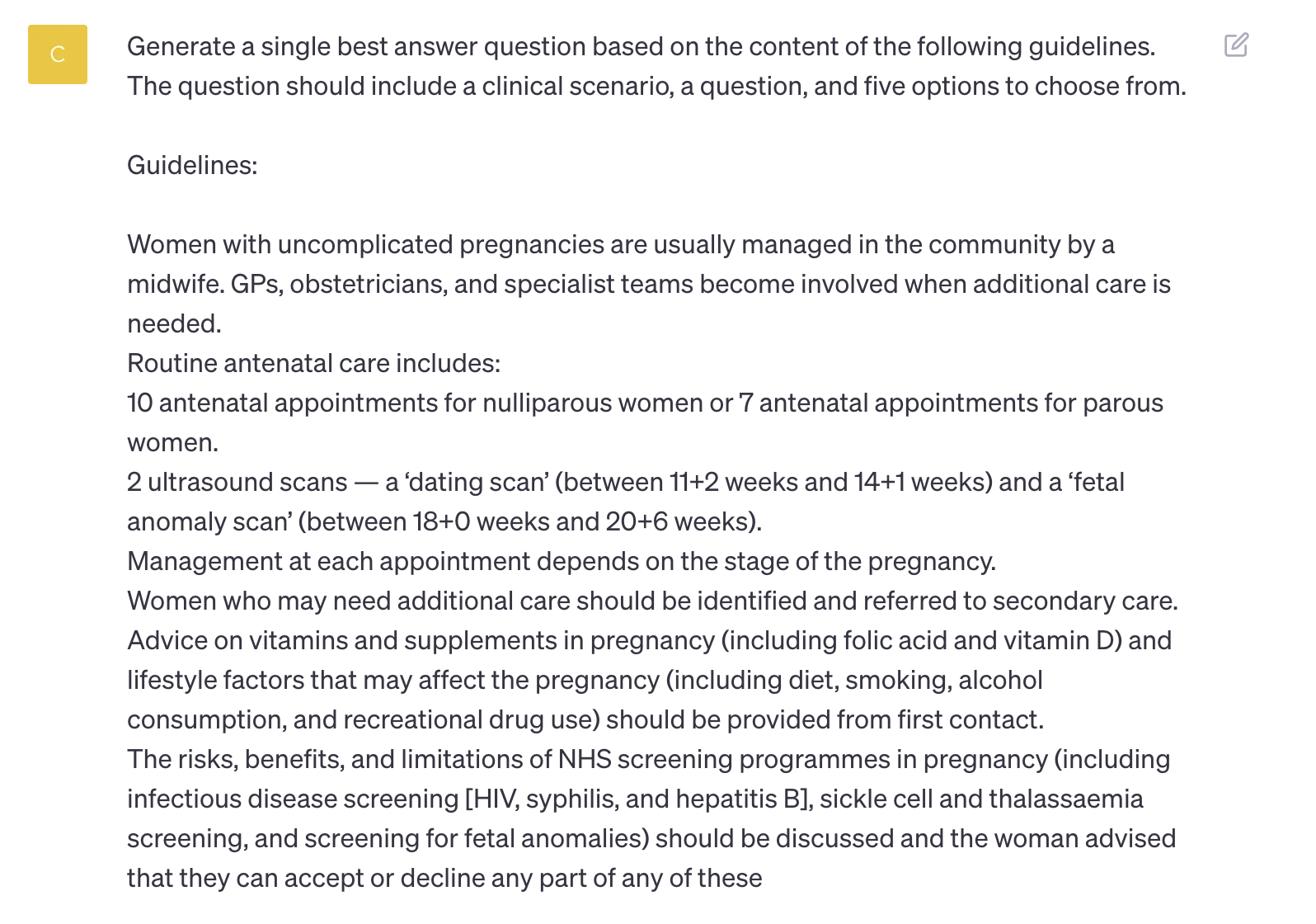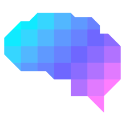- 📖 Geeky Medics OSCE Book
- ⚡ Geeky Medics Bundles
- ✨ 1300+ OSCE Stations
- ✅ OSCE Checklist PDF Booklet
- 🧠 UKMLA AKT Question Bank
- 💊 PSA Question Bank
- 💉 Clinical Skills App
- 🗂️ Flashcard Collections | OSCE, Medicine, Surgery, Anatomy
- 💬 SCA Cases for MRCGP
To be the first to know about our latest videos subscribe to our YouTube channel 🙌
Introduction
ChatGPT is an artificial intelligence (AI) chatbot developed by OpenAI. It can understand and respond to text-based instructions (called prompts).
ChatGPT can be a powerful tool for medical students. It can act as a personal learning assistant and help you understand complex medical topics and prepare for medical school exams.
In this guide, we’ll discuss how to use ChatGPT in your medical education. We’ve included specific examples and custom prompts to help you set up ChatGPT effectively. This guide is suitable for users of the free version of ChatGPT (GPT 3.5).
This guide will also be helpful for medical school staff and faculty looking to use ChatGPT in their institutions or with their students.
Limitations of ChatGPT
Although it can be a powerful tool for medical education, ChatGPT does have some limitations:
- ChatGPT is an AI language model and not a medical expert; it can’t understand the nuances of medical practice as a qualified doctor would.
- It can occasionally generate responses that are ambiguous, incorrect or misleading
- ChatGPT’s data may not be fully up-to-date or may lack information on specialised medical topics
- It can struggle with complex tasks, especially the free version of ChatGPT (3.5)
- The more powerful version (ChatGPT Plus, or GPT-4) is not available unless you sign up for a paid subscription
Remember, ChatGPT generates responses based on a computer algorithm, and although these responses can seem ‘human-like’, it does not understand human behaviour or have any ‘real world’ lived experience!
Setup custom instructions
Before you start using ChatGPT, it is helpful to set up custom instructions to help improve the quality of the responses. An important concept to understand is that ChatGPT does not understand your circumstances and context.
For example, ChatGPT will not know you are a medical student, your stage of study, or the type of responses you find helpful. It will not know that you are using it to help understand medical concepts or prepare for medical school exams.
This can make the quality of ChatGPT’s responses less useful for you. For example, ChatGPT may use non-medical terminology or use American medical language.
To avoid this, you can set up custom instructions which tell ChatGPT about you, the context in which you are using it, and the type of responses you are looking for.
Example of custom instructions for medical students
What would you like ChatGPT to know about you to provide better responses?
I am a third-year medical student in the United Kingdom. I am studying for my medical school exams.
How would you like ChatGPT to respond?
Always use British English and British spelling of medical words. Do not use American medical terminology or colloquialisms. When answering medical questions or providing medical information, you must use UK guidelines and UK sources. Your answers should reflect UK medical practice. Do not use lay terminology, always use precise medical language.
Writing ChatGPT prompts
In ChatGPT, a prompt refers to the initial question or statement input into the model to elicit a specific response. In other words, a prompt is what you ask ChatGPT to do.
It serves as a directive for the AI, guiding it on what information is being sought (e.g. asthma symptoms) or what task needs to be accomplished (e.g. generating a question on asthma).
The quality and clarity of the prompt can significantly impact the accuracy and relevance of the response. Remember, ChatGPT doesn’t know how you want it to respond unless it is included in the prompt! Therefore, formulating a well-thought-out prompt is essential for obtaining a useful response.
Examples of ChatGPT prompts
In general, more detail in the prompt is better. If you can, be specific and tell ChatGPT precisely what you’re looking for and how you want it to respond.
Asthma symptoms
You are revising for your medical school exams and want to include a list of asthma symptoms in your revision notes.
Lower quality prompt: “Tell me about the symptoms of asthma”
- This prompt is broad (“tell me about”) and may lead to a lower quality response
Higher quality prompt: “List the key symptoms of asthma in bullet point format and include brief information about the nature and relevance of each symptom”
- This prompt gives clear instructions to ChatGPT, and will likely lead to a more useful output
Understanding Rinne’s test
You are revising for an upcoming OSCE, and you are finding it difficult to understand how to interpret Rinne’s and Weber’s tests.
Lower quality prompt: “What is Rinne’s test?/What is Weber’s’s test?”
- This broad prompt may lead to ChatGPT including lots of irrelevant information when we want it to focus on interpreting these tests.
Higher quality prompt: “I’m struggling to understand how to interpret the findings of Rinne’s test/Weber’s. Can you explain how to interpret this test?”
- This prompt gives ChatGPT extra context and tells it which area (interpretation of the tests) to focus on
Explain medical concepts and conditions
You can ask ChatGPT to explain medical concepts, diagnoses and conditions. ChatGPT can help explain complex topics which you are struggling to understand.
For example, ChatGPT can:
- Produce a summary of a medical condition you haven’t encountered before
- Explain how to interpret clinical signs
- Explain a medical concept
- List clinical features associated with a diagnosis
- Summarise content from textbooks and guidelines to highlight relevant investigations and management options
Your prompt to ChatGPT will depend on the topic or concept you wish to explore. The prompts above are simple questions. However, you may wish to give ChatGPT more information (e.g. if you are struggling to understand a particular topic area).
Generate differential diagnoses
ChatGPT can help you develop your clinical reasoning skills by generating lists of differential diagnoses. For example, you can give ChatGPT a patient scenario and ask it to consider some differentials.
Alternatively, you can ask ChatGPT to generate differential diagnoses for a particular medical condition.
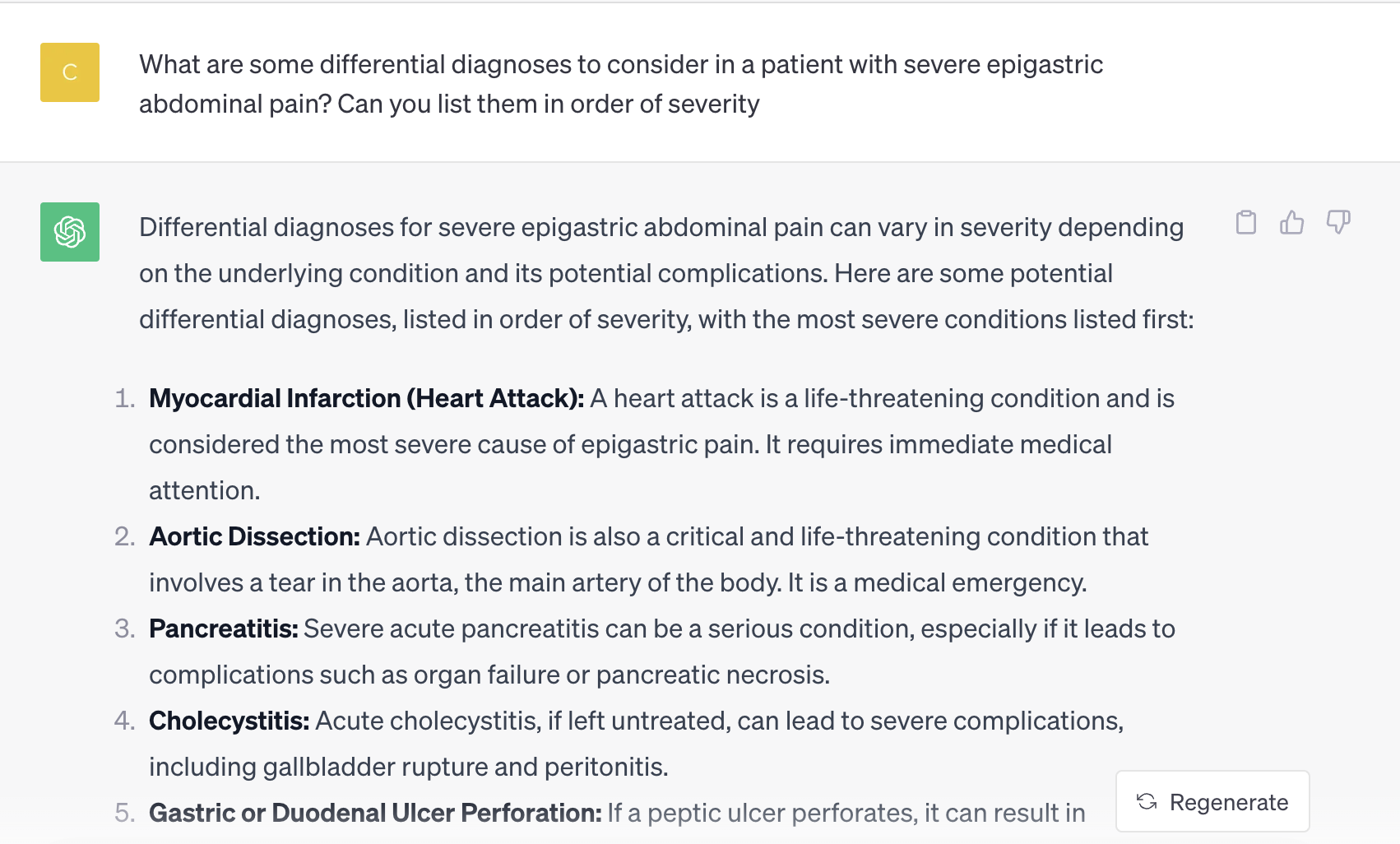
Create memory aids and mnemonics
If you use memory aids and mnemonics when revising, ChatGPT can help you generate these. Medical mnemonics are a popular way of remembering high-yield facts. Some medical mnemonics are timeless, such as the mnemonic for remembering the carpal bones or the causes of pancreatitis.
ChatGPT can help you generate new mnemonics and tips for remembering concepts. You may not find all of the mnemonics it generates useful. However, you can improve the quality of the mnemonics it generates by giving ChatGPT more information in the prompt.
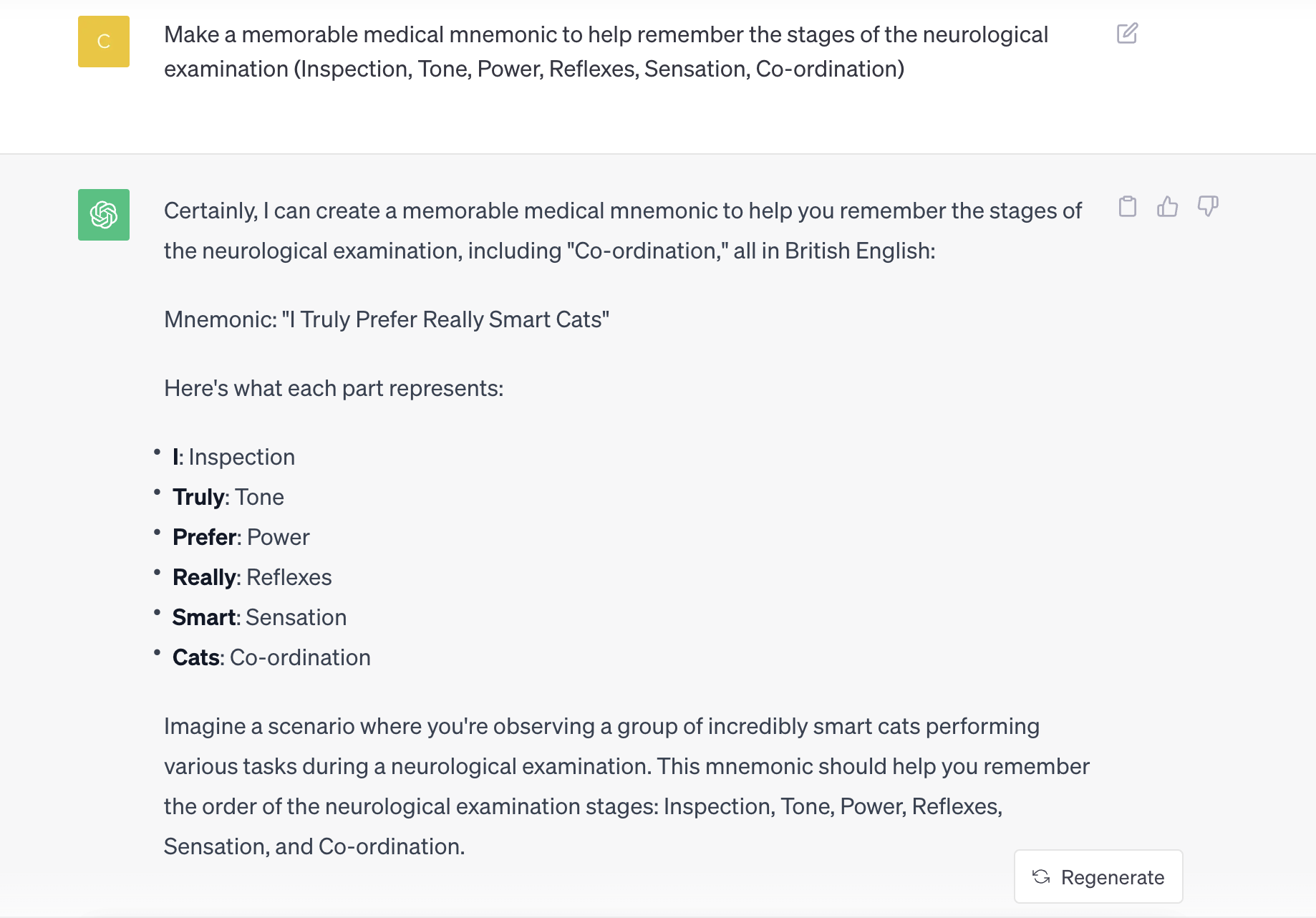
Test your knowledge
You can use ChatGPT to test your knowledge by asking questions about a topic or a condition. You can ask ChatGPT to focus on a specific area (e.g. pathophysiology).
Socratic questioning involves teaching by asking specific questions, and ChatGPT can take on the role of a ‘Socratic tutor’ by asking you a series of questions on a topic.
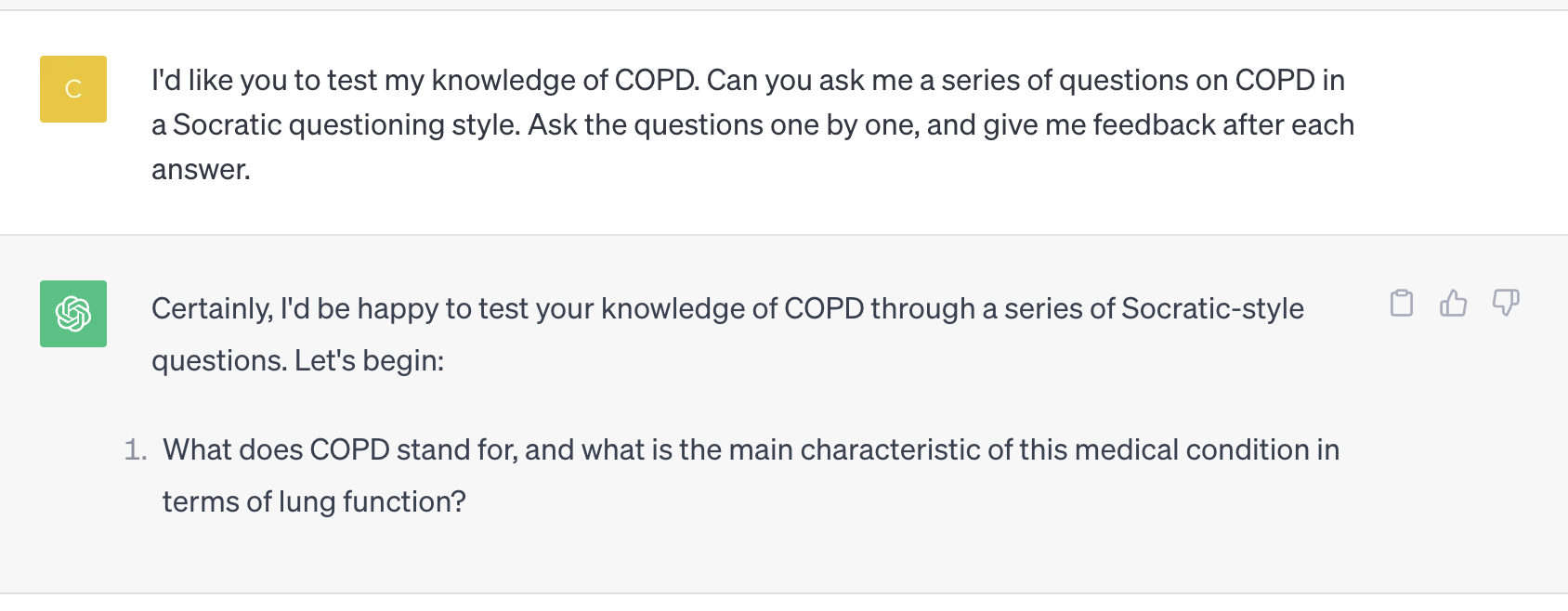
Writing medical questions
ChatGPT can generate medical questions to help to prepare for medical exams.
You can ask ChatGPT to generate questions in any format, including traditional multiple choice questions (MCQs), single best answer (SBA) questions, extended matching questions (EMQs) and true/false questions.
When asking ChatGPT to generate questions, the prompt needs to contain instructions for the structure of the question and the topic to be tested. To reduce the likelihood of ChatGPT providing incorrect or misleading questions, it is also helpful if you provide it with a summary of specific content that you would like it to test you on – for example, from the NICE guidelines:
Although we have used a relatively short summary here, ChatGPT supports longer prompts. Feel free to experiment with giving it as much helpful context as you can!
Practise for OSCEs
We’ve used the underlying technology which powers ChatGPT to provide AI-powered simulated patients, available as part of our OSCE Stations subscription.
You can chat with our virtual patients anytime, letting you practise OSCEs on the go. You can choose to interact by typing, or you can speak into your microphone to simulate a real-life consultation.
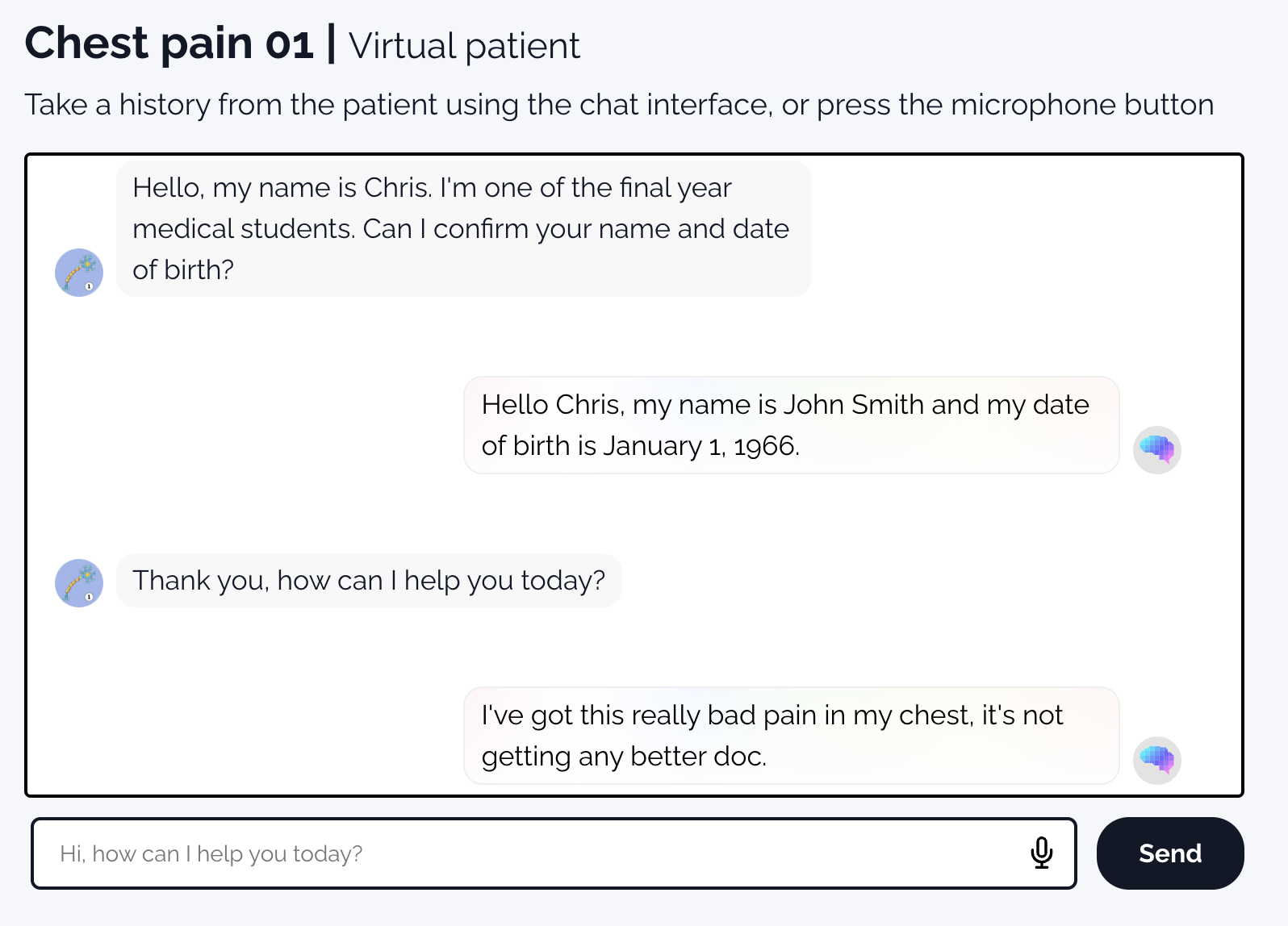
Reviewer
Dr Jack O’Sullivan
Doctor and ed-tech consultant
References
- OpenAI. Introducing ChatGPT. Published in November 2022. Available from: [LINK]
- OpenAI. Best practices for prompt engineering with OpenAI API. Published in 2023. Available from: [LINK]


